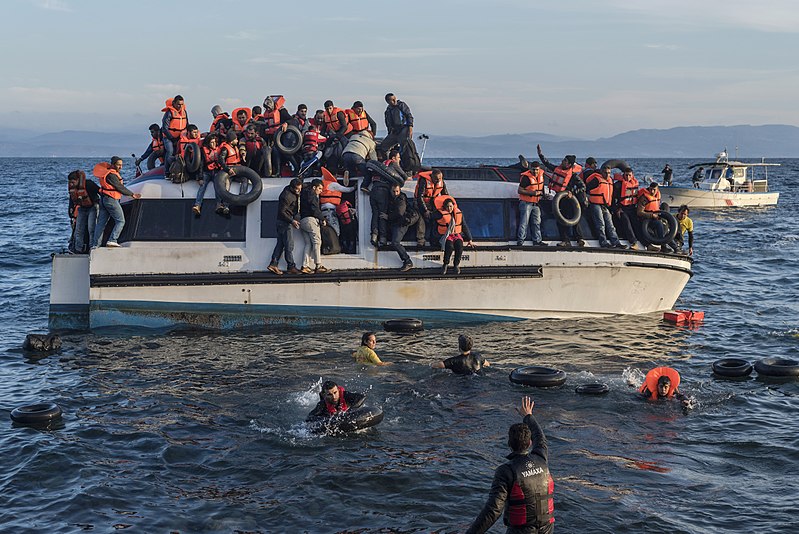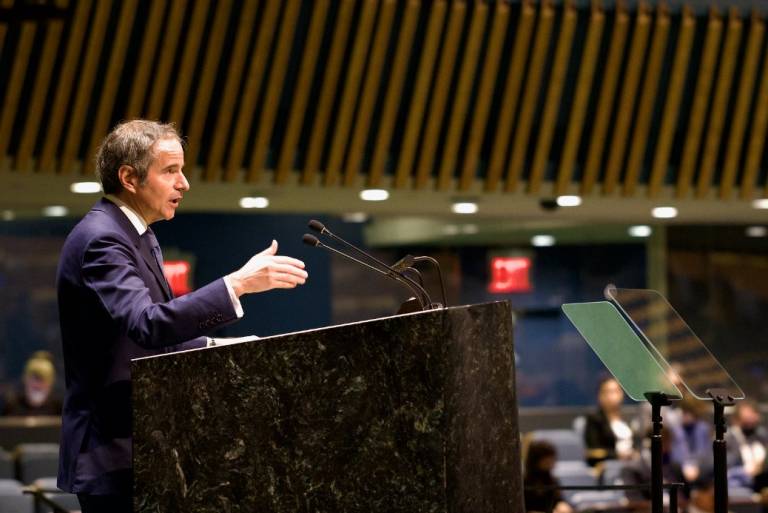Student blog by Federica Panzarella*
The aim of this blog post is to explore the phenomenon of migration from the perspective of societal security. After an introduction about the current circumstances of migration in Europe, and in particular in Italy, I will analyze the modern concept of societal security and try to identify its limitations when applied to migration discussion.
Many times I came across Italian newspaper articles, TV reports or even political speeches, which depicted immigrants, both legal and illegal, as an existential threat for the sovereignty and identity of the state. Together with the negative perception diffused by media about migration flows, I noticed two other trends, which are also largely widespread and recognized at European level. The first is the diffusion of sentiments of xenophobia and racism among citizens; the second, that is even more worrying from my point of view, is the perception, diffused among some individuals, of being justified to publicly express (e.g. on public transports, social media, in schools, etc.) their feelings of hatred towards immigrants.
The increasing of paranoia and xenophobia among citizens, which is proven by the distortion in perception of the amount of actual immigrants, has been implemented through the rise of ethnopopulist parties in different states of the EU (among which: Austria, Belgium, Italy, Netherlands, France, etc.).
Immigration has become a security issue because I) crime and violence episodes are often linked to immigrants, despite of previous studies that indicate there is not a higher rate of crime among immigrants compared to the host population (Graham 2000, as cited in Bilgin, 2003) and II) host communities see migration as a threat to the survival of their group identity (Alexseev, 2011; Perni, 2001). Possible explanations for the anti-immigrant sentiments are growing unemployment and the difficulties in addresing social needs and integration (Birgin, 2003). According to Alexseev, the exaggeration of migration scale is due to the concerns of natives about the uncertain effects of migration on the state capacity to address the needs of the new populations and its socio-economic impacts (Alexseev & Hofstetter 2006, as cited in Alexseev, 2011).
In accordance with Copenhagen school’s perception of societal security, migration could be seen as a security threat, as societal security is understood through existential threats to identity patterns, such as language, culture, religion, nationality and customs (Chiufu, as cited in Virta, 2019). However, national identities are constantly changing in response to the mechanisms of globalization, which imply a constant internal-external exchange of people, goods and services. In this sense, what does national identity mean? Is it still a valid concept? As stated by McSweeney, identity is an inconstant and variable process and thus it cannot be considered as an objective reality. For this reason, he claims that a threat to identity is not objective enough to be included in security agenda and that “clashes over identity are not the cause but the outcome of a process through which conflicts over economic and political interests are reframed and presented in terms of identity” (McSweeney 1998, as cited in Panić, 2009).
Moreover, the response of host populations to immigration follows the old logic of national security, according to which security of people is strictly dependent on the security of the borders of a nation state. This is due to the fact that migration in the past two decades has arisen in a world divided into nation states, in which moving to another country is still perceived as a deviation from normality and status quo (Perni, 2001). In addition, the contemporary challenges, among which climate change and drop in birth rate in EU are, indicate that migration is necessary for the future development of Europe (Perni, 2001).
For all the above reasons, the concept of societal security does not seem to have overcome the state centric notions of security in favor of a broader understanding of individual, human and global security. In order to do so, a shift from the perception of migration as a danger for the society towards a more inclusive and positive point of view is still necessary.
When talking about securization of migration, who has to be defended? The territory or the individuals at large? Does the inside-outside distiction still make sense in a globalized and interdependent world? As stated by Alexeev in the context of anti-migrant hostilities in Russia: “focusing on economic and social policies related to migration rather than debating ‘immigration policy’ – particularly in identity and security terms – is likely to be a plausible path to reducing the political ‘flash potential’ of immigration and to improving socio-economic conditions of both migrants and migrant-receiving societies” (Alexseev, 2011).
*This student blog post has been done as part of the course SAFS01 Societal Security: Contemporary Challenges in the Masters Degree Programme in Security and Safety Management (SAFER) in fall 2019.
References
Alexseev, M.A. (2011). Societal security, the security dilemma, and extreme anti-migrant hostility in Russia. Journal of Peace Research, vol. 48, no. 4, pp. 509-523.
Bilgin, P. (2003). Individual and Societal Dimensions of Security. International Studies Review, vol. 5, no. 2, pp. 203-222.
Kim, S. (2008). Concept of Societal Security and Migration Issues in Central Asia and Russia. Central Asian Migration Management & International Cooperation (CAMMIC).
Panić, B. (2009). Societal security – security and identity. Western Balkans Security Observer.
Perni, O. (2001). Migration Flows, Societal Security and EU’s Integration Process. The Spanish Case. International Conference ‘European Security in the XXI century’, Granada, 5-9 November 2001. Workshop 7. Europe facing migration flows.
Virta, S. (2019). First Lecture on Societal Security: Contemporary Challenges. Tampere University. October 22nd, 2019.





